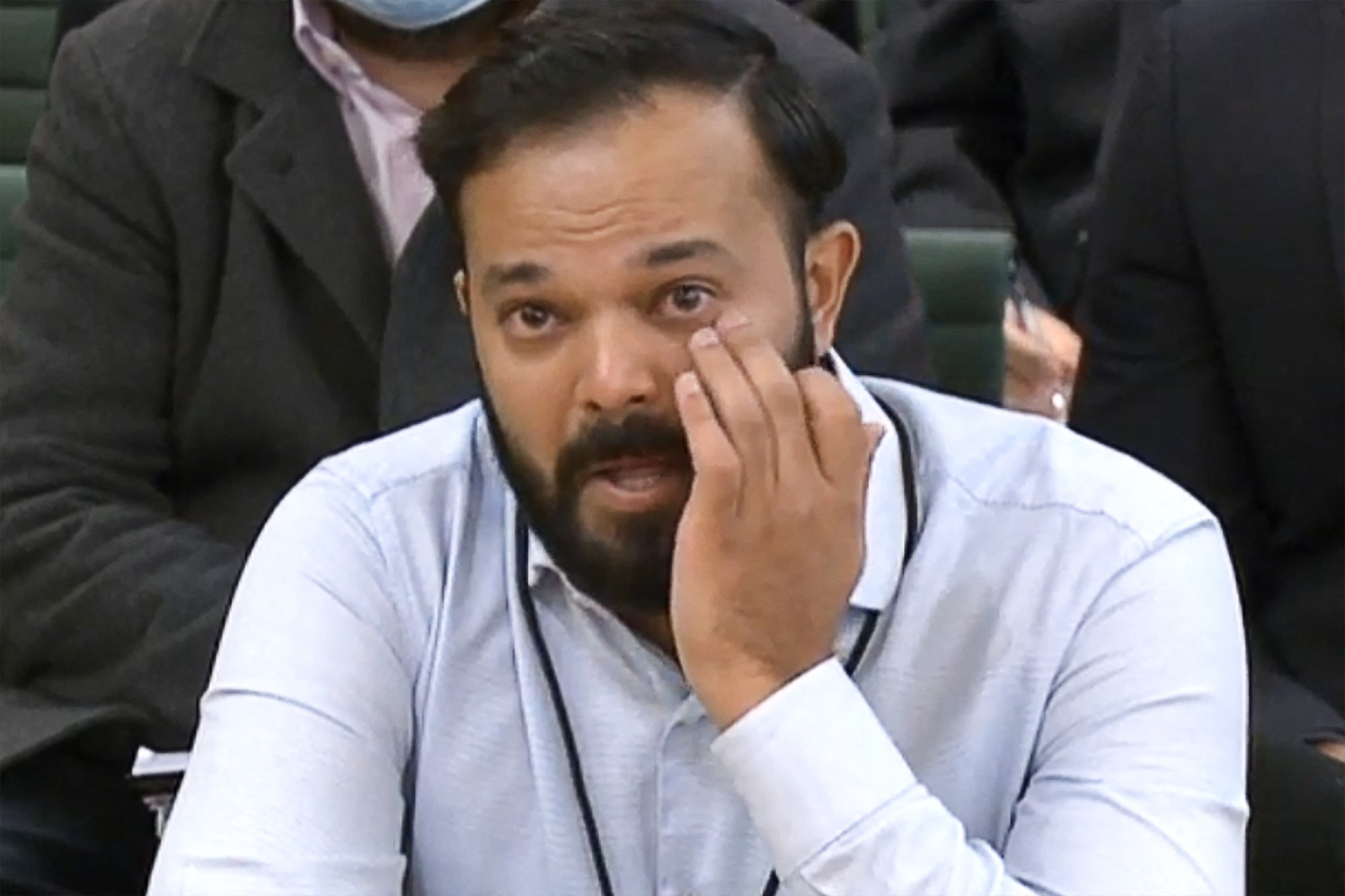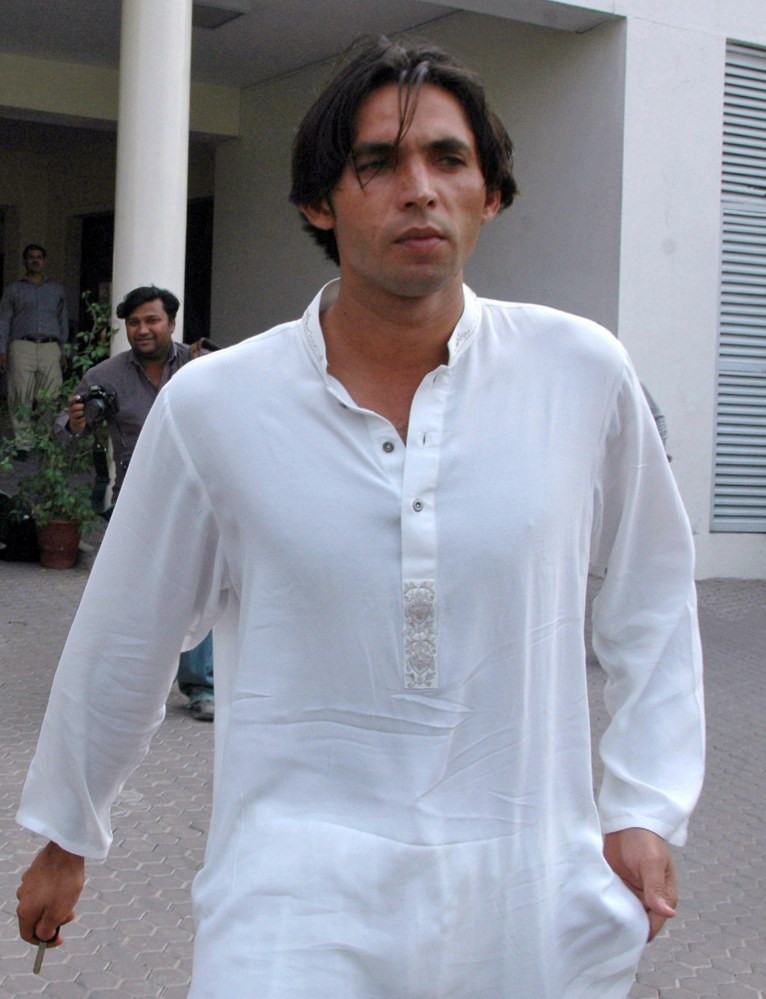
Racism in English cricket extends to protecting white players accused of match fixing, claims undercover investigator
- A private investigator says he has been given ‘persuasive evidence of corruption among the Australian and England teams’
- The ECB and ICC have dismissed allegations of corrupt practices exposed by an Al Jazeera documentary on cricket’s match-fixers
The recent Yorkshire racism scandal that tarnished English cricket goes beyond insulting and humiliating minorities and also extends to match-fixing, according to an undercover investigator who has penetrated and embedded himself in the underbelly of corruption in the sport.
The investigator, who prefers to remain anonymous because he continues to perform undercover work in sports corruption, said white players were largely ignored by authorities investigating suspicious activity in cricket, despite the England & Wales Cricket Board (ECB) and ICC Anti-Corruption Unit possessing prima facie evidence implicating English and Australian players in matches from 2010 to 2017.
The ECB, in a response to the Post, dismissed the allegations and denied any bias. Australia’s cricket governing body had previously said they found no evidence of corruption after conducting its own investigation.
“As somebody who has been investigating cricket corruption since 2010, I can tell you first hand that we have been given – by a whistle-blower – persuasive evidence of corruption among the Australian and England teams, plus others,” the undercover investigator said.
“There were specific, identified instances in multiple matches and we used statistical analysis by a neutral expert to check the information and the conclusion was the matches were mostly likely fixed.
“But they won’t go after white players. Using Yorkshire as a prism to look at racism in English cricket, it is everywhere. And the reason is cricket is dominated by upper-middle class, entitled white people. Even at village green level, it is systemic and endemic and just one guy so far has had the courage to expose it.”

In September, ex-professional Azeem Rafiq, who was born in Pakistan, said in an interview he was close to taking his own life because of the racism he faced at Yorkshire County Cricket Club, one of England’s most famous sporting clubs.
He accused the club of “institutional racism” and spoke before British MPs in a Digital, Culture, Media and Sport select committee on 16 November. A number of high-profile personalities, including former England captain Michael Vaughan, were named.
In 2018, Al Jazeera broadcast the documentary Cricket’s Match-Fixers, in which reporter David Harrison posed as a businessman working on behalf of fictitious crooked investors who bet on matches. The AJ team exposed the activities of a fixer by the name of Aneel Munawar, an Indian national.
AJ later released a statement expressing disappointment at the International Cricket Council (ICC) for failing to investigate its findings, saying: “We are particularly struck by what appears to be a refusal in some quarters even to accept the possibility that players from Anglo-Saxon countries could have engaged in the activities exposed by our programme and that the evidence we have uncovered even merits appropriate investigation.”
The ECB said its own investigation showed that the AJ allegations lacked credibility – the same conclusion reached by the ICC in a report published in 2021.
UK media’s failed cricket match-fixing probes: focus on England
“The ECB takes its responsibilities on anti-corruption and preserving the integrity of cricket very seriously,” an ECB spokesman told the Post in an email response.
“The ECB Integrity Team properly assessed the limited information supplied by Al Jazeera. This analysis cast no doubt on the integrity or behaviour of any England player, current or former.
“We fully complied with the ICC’s Anti-Corruption Unit as they conducted their investigation, which found the claims lacked credibility, a finding which was corroborated by four independent experts.”
In October 2018, the ECB and Australia’s cricket governing body dismissed AJ’s claims about possible match-fixing in their matches.
Speaking on racism in general in the United Kingdom, academic Daniel Klivington said the English mentality was to often portray other nations and ethnic groups as cheats and dishonest.
“South Americans being aggressive and dirty in football, Italians as divers, [but] the English are consistently framed as honest, fair and hard working,” said Klivington, course director and senior lecturer in media and cultural studies at Leeds Beckett University.

“So, when it comes to sportsmanship, the English pride themselves on this. So, cheating contrasts with the vision of Englishness that is constructed by the sport media. We like to think we win fairly and lose fairly.
“So, when the Pakistani players are alleged and found guilty of spot fixing, it reaffirms the belief that dishonesty and cheating is something that exists within other nations, it’s not something that affects the English game with its spirit of honesty and integrity.
“There is been a long history of how white players are seen or treated differently compared to athletes of colour. This relates to how stereotypes determine how the players and communities are framed. [football player] Raheem Sterling and [seven-time F1 world champion] Lewis Hamilton are often considered ‘flashy’ and ‘bling’ and implicitly criticised for not knowing their place in society.”
The covert operative said the evidence available on possible match-fixing had been passed on to Interpol because there was no confidence the ICC ACU would treat the allegations seriously and properly investigate.
He said evidence of corruption had been given to these governing bodies before an England and Pakistan one-day match at The Oval in September 2010. The ICC believed the evidence to be persuasive enough to cancel the match but the ECB intervened and decided to play on.
“All they did was go into the changing rooms of each team before the match and warned them against any kind of match-fixing,” said the operative.
English media’s failed match-fixing probes: Munawar meetings
He said the most popular kind of corruption in cricket was session fixing, in which players follow a script for a small portion of the match – “the session”-usually a block of 10 overs. For instance, batters may be asked to score higher or lower than a certain amount of runs in 60 deliveries, with organised crime syndicates involved in the fix betting money on a known outcome and running their own books.
He said session fixing does not involve deliberately losing a match so players are less inclined to feel they are involved in fixing.
In May, the ICC released a report on its three-year investigation into the allegations coming out of the AJ documentaries dismissing the session fixing charges as “implausible”.
UK media’s failed spot-fixing probes: Kaneria comedy show
“The programme alleged that two matches were fixed: India v England in Chennai in 2016 and India v Australia in Ranchi in 2017,” the ICC said in a media release. “To assess whether the passages of play highlighted in the programme were unusual in any way, the ICC engaged four independent betting and cricketing specialists to analyse the claims.
“All four concluded that the passages of play identified in the programme as being allegedly fixed were entirely predictable, and therefore implausible as a fix.”
In September, 2011, Pakistan captain Salman Butt and fast bowlers Mohammad Asif and Mohammad Amir were suspended after being named in an investigation by a British news outlet into spot-fixing during a Test match at Lord’s in August, 2010.

All three were handed jail terms by an English court in November, 2011, along with a sports agent Mazhar Majeed.
In July, 2014, New Zealand cricketer Lou Vincent was banned for life by the ECB for match-fixing after admitting 18 breaches of anti-corruption rules, including a match involving county side Sussex.

